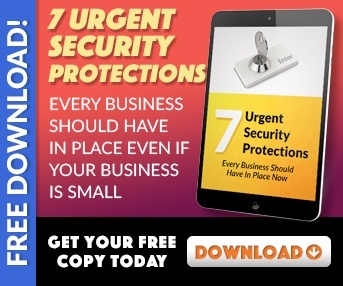Mistakes like inconsistent branding, poor typography, low-quality images, and non-mobile-friendly layouts can harm a construction company's credibility. Professional, cohesive, and responsive design builds trust, strengthens brand recognition, and attracts more clients.
 While spam emails are annoying, phishing scams pose a real security threat - and they're on the rise. Online phishing attacks increased by 297 percent over the last year, proving to be very profitable for scammers, especially against businesses. In fact, the average cost of a phishing attack for a mid-sized business is $1.6 million.
While spam emails are annoying, phishing scams pose a real security threat - and they're on the rise. Online phishing attacks increased by 297 percent over the last year, proving to be very profitable for scammers, especially against businesses. In fact, the average cost of a phishing attack for a mid-sized business is $1.6 million.
And, although more companies using two-factor authentication for added security, scammers are getting more advanced in their methods to steal your details.
Learn how to protect yourself from getting hooked in by phishing attacks here.
Phishing usually takes the form of an email, although this method of scamming has now spread to SMS messages, apps, and social media.
The aim of a phishing attack is to trick the target into doing what the scammer wants. This usually involves entering password details on a fake email link or installing a virus that allows scammers to access your computer and accounts.
If you're still wondering, 'what are phishing emails and how do I spot one?', here are five ways to avoid falling for phishing emails and other scams.
Related Post: Phishing and Spam - What are they and how to stay safe
One way to spot a potential phishing email is to look at the sender's address.
A lot of the time, email phishers can't fake a legitimate address and hope that readers don't notice. Instead of the real company name, the address might be a string of random characters.
If you receive an email from a strange address, forward it to the Federal Trade Commission at spam@uce.gov.
Unless you were expecting an email, such as from a company you've just signed up to asking you to confirm your email address, never click on an email link.
If an email claims to be from your bank or money management sites like PayPal, go directly to the site rather than via a link. This is what official sites will most likely ask you to do anyway.
 3. Avoid Panicking
3. Avoid Panicking As well as emails, pop-ups are a common way to get you to click on links or enter details. And, nothing incites you to click without thinking than a message like, "Warning: Your computer has been compromised! Click here for protection!"
But that click often takes you to a toxic site or embeds a virus on your computer. So, don't panic and you won't end up clicking on something you shouldn't have.
Another way scammers like to grab your attention is with big prizes like free shopping gift cards.
These emails and pop-ups might even grab your attention if they appear to be from a store you frequent. But, no matter the source, do not click. Online, 'free' means danger, so don't fall for it.
To protect yourself from future attacks, install a phishing filter on your email application and your web browser. And be sure to get security software on your computer, such as Norton or McAfee. Although these measures won't block out all phishing, they will cut down attempts.
Thanks to this guide, not only can you answer the question, 'what is email phishing?', you know exactly how to avoid falling for phishing scams.
But, when it comes to technology, whether it's online security or IT management, knowledge is power.
So, if you still have any questions, we're sure to have the answer. For more information, contact us today.

Don’t trust your company’s critical data and operations to just anyone! This business advisory guide will arm you with 21 Revealing Questions you should ask any computer consultant before giving them access to your network.
7500 Jefferson St. NE
Albuquerque, NM 87109
505-823-3400